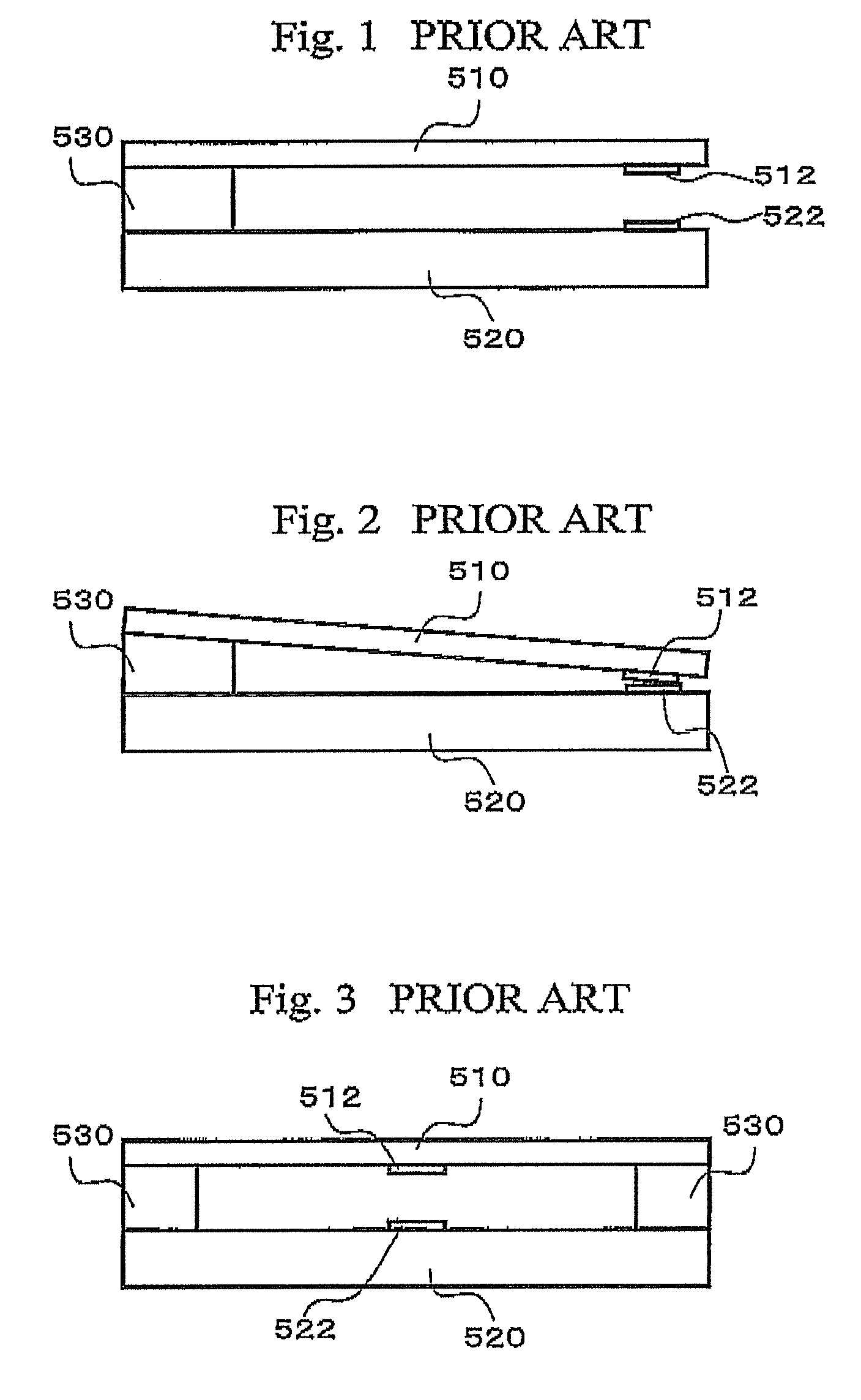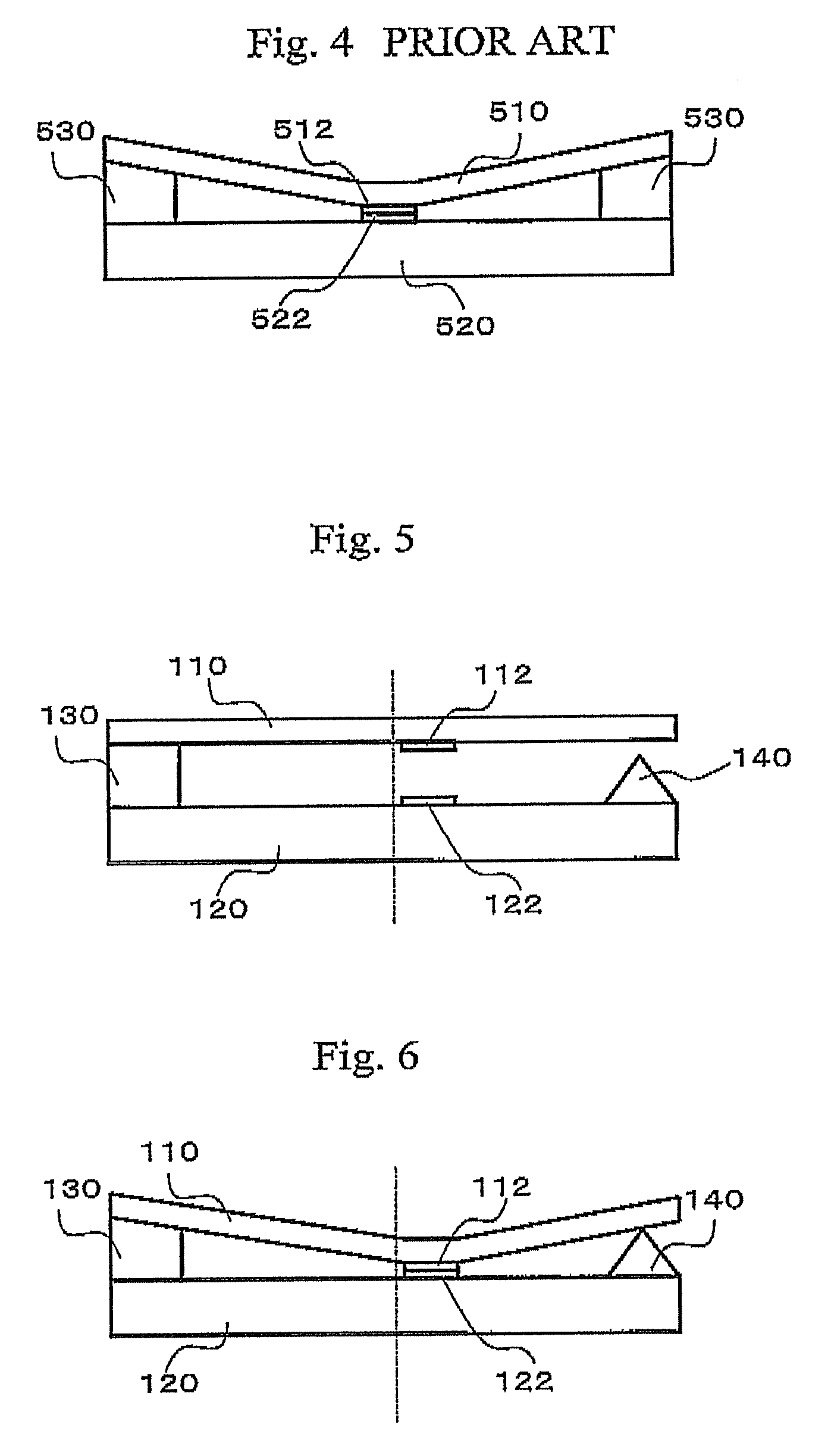Switch device
a technology of switch and switch plate, which is applied in the direction of relays, contacts, contact mechanisms, etc., can solve the problems of short service life of contact points, difficult stabilization of contact resistance value, and inability to make second conventional microrelay smaller in size, etc., to achieve precise switching operation and higher degree of freedom of movemen
- Summary
- Abstract
- Description
- Claims
- Application Information
AI Technical Summary
Benefits of technology
Problems solved by technology
Method used
Image
Examples
Embodiment Construction
[0063]The following is a description of switch devices as embodiments of the present invention, with reference to the accompanying drawings.
[0064]Referring first to FIG. 5, a first switch device is described. FIG. 5 is a side view of a microrelay as the first switch device. In the microrelay illustrated in FIG. 5, a movable spring 110 that is made of silicon or the like is placed above a substrate 120 that is made of silicon, Pyrex (trade name), or the like. This movable spring 110 has one end fixed by a fixing member 130 to form a fixed end, with the other end being a free end. A protrusion 140 is formed on the substrate 140. The protrusion 140 is located to vertically face the free end of the movable spring 110. The protrusion 140 is shorter than the fixing member 130. A contact point 112 that serves as a movable contact point is provided at a location slightly closer to the free end of the movable spring 110. Another contact point 122 that is a fixed contact point is provided at ...
PUM
 Login to View More
Login to View More Abstract
Description
Claims
Application Information
 Login to View More
Login to View More - R&D
- Intellectual Property
- Life Sciences
- Materials
- Tech Scout
- Unparalleled Data Quality
- Higher Quality Content
- 60% Fewer Hallucinations
Browse by: Latest US Patents, China's latest patents, Technical Efficacy Thesaurus, Application Domain, Technology Topic, Popular Technical Reports.
© 2025 PatSnap. All rights reserved.Legal|Privacy policy|Modern Slavery Act Transparency Statement|Sitemap|About US| Contact US: help@patsnap.com



